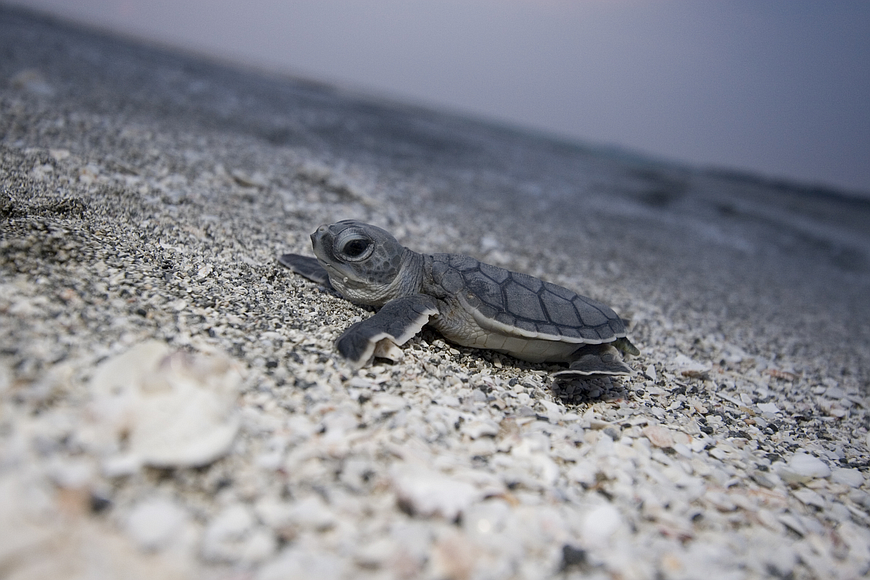- November 23, 2024
-
-
Loading

Loading

With 30 turtle nests already scattered throughout Sarasota County, it’s official — nesting season is here, and with it comes marine turtle protection citations.
Citations, which are issued through Sarasota County code enforcement, arise when Sarasota County’s Marine Turtle Protection Ordinance, or MTPO, is violated.
The citations have increased within the past several years, with some businesses and residential properties seeing multiple citations in a given year.
Citations typically arise when exterior and interior white lighting is visible from the beach, or when beach furniture is left where it can obstruct hatchlings on their way to the water.
It is for these reasons Lido Key properties amassed 51 citations in the last two years, while Siesta Key saw an increase from 67 citations in 2017 to 83 in 2018, according to information provided by Sarasota County spokesman Drew Winchester.
When a resident or business is in violation of MTPO, Sarasota County issues citation letters that address the violation and provide technical support to help bring properties into compliance, said Sarasota County code enforcement in a statement. The county does not issue fines for the MTPO violations, unlike the town of Longboat Key, which can fine offenders on the spot.
According to Mote Marine Laboratory and Aquarium research, there were 3,143 turtle nests spotted in Sarasota County in 2018, down from 4,503 in 2017. Several factors could have led to that decrease, such as an increase in disorientation numbers, beach obstructions and predators.
“Sarasota County beaches provide important nesting habitat and host the largest number of sea turtles on the Gulf Coast of Florida,” the code enforcement statement said. “With such low survival, only one out of every 1,000 hatchlings surviving to adulthood, their biggest threats are often man-made.”
Hatchlings instinctively travel toward the brightest surface on the horizon. Typically, this should be the surface water reflecting the moon. However, on Sarasota County’s developed beaches, the brightest light may come from coastal homes and businesses.
Common locations for violations over the last two years are properties along Benjamin Franklin Drive on Lido, and Beach Road and Midnight Pass Road on Siesta.
One of the businesses that saw a warning citation in 2018 was Siesta Key’s Daiquiri Deck, located at 5250 Ocean Blvd. The business received a warning for its parking lot lights, which could be seen from the beach.
“I walked down to the beach at night to see how it was affecting the turtles, and I actually could see it a little bit in the a distance and it was a fairly bright light,” said owner Russell Matthes. “So, we changed all the lighting in the parking lot at the Daiquiri Deck to the appropriate lighting because we of course want to protect the turtles.”
Business owners and coastal residents can avoid such citations and warnings by ensuring lighting is compliant with the MTPO.
Compliant exterior lighting should be mounted low to the ground, use a long wavelength and be shielded. Interior lighting can be blocked with turtle tint windows, which reduce the visible light transmittance to 45% or less, or by closing all curtains and blinds before dark.
Others can avoid harming hatchlings by removing all furniture from the beach at night, properly disposing of trash, knocking down sand castles before leaving the beach and staying clear of marked nesting areas, according to Sarasota County.